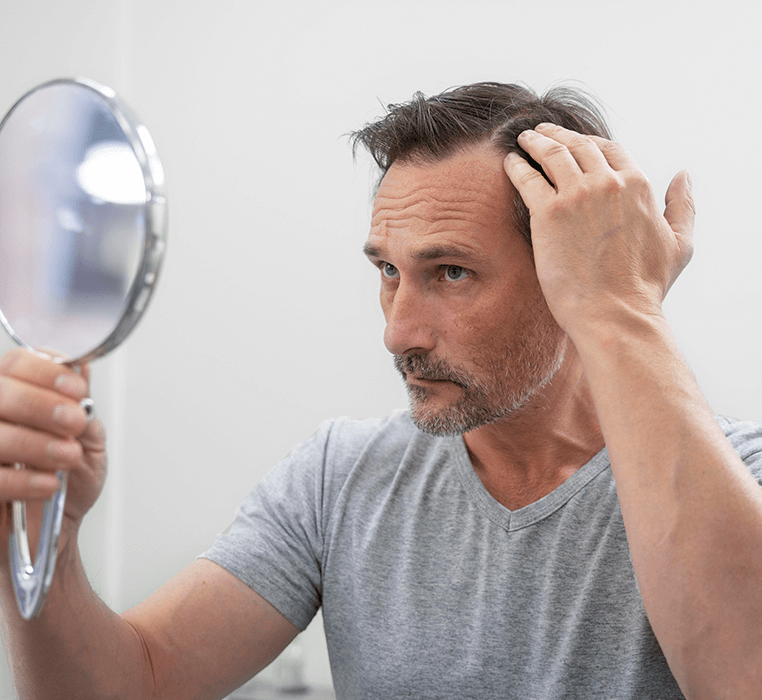Alopecia Areata: Causes and Treatment Methods
Alopecia areata is an autoimmune disease that can cause sudden and unpredictable hair loss. Research mostly focuses on the possibility that this problem is associated with genetic and environmental factors.
You may also be one of those who suffer from hair loss, have large bald spots, and are looking for a solution. Well, you are not alone. In fact, about 150 million people worldwide suffer from alopecia areata.
So how does alopecia areata affect your scalp? Often, you experience patchy hair loss starting as thinning in small areas of your head. However, alopecia is a condition that can affect much larger areas.
While “alopecia totalis” describes a complete loss of hair on the scalp, a condition that spreads over the entire body is referred to as “alopecia universalis.” It can usually affect anyone, regardless of age, ethnicity or gender. You may even hear of cases of alopecia areata in children.
In this article, we will share with you the causes and treatment methods of alopecia areata. As CLINIQUEPLUS family, we offer you the best alopecia areata treatment at the most affordable prices. If you have such a problem, get a free consultation with us now.
Causes of Alopecia Areata
As in other cases of autoimmune diseases, your own immune system causes some problems in your body. Hair loss is seen in alopecia.
Although the exact causes are unknown, the occurrence of alopecia areata is mostly based on hereditary and environmental factors. Stress is one of these elements.
Alopecia is unpredictable in most cases. While you are in this disease process, your hair may grow back and fall out again. Or hair loss is no longer observed. For this reason, almost every case is evaluated separately from the others.
Considerations While Living with Alopecia Areata
If you are suffering from alopecia areata and you are in treatment, there are some precautions you can take to make your life easier.
Your hair not only provides you with aesthetic satisfaction, but it also protects you against external factors. That’s why you should know things to avoid when you have alopecia areata.
- Always use sunscreen when you are exposed to the sun,
- Wear sunglasses when you are in the sun for long periods of time,
- Use hats, wigs, and similar head coverings,
- If you suffer from alopecia universalis, use special ointments to protect the inside of the nose.
Remember that alopecia areata is not a contagious disease that makes you physically weak. It can be a difficult process to adjust only mentally and emotionally, but with proper and effective treatment it is possible to overcome it successfully.
How Can You Get Rid of Alopecia Areata?
If you research people’s story about “How I cured my alopecia areata?”, you can also find information that it is not possible to cure this problem. However, this is not entirely true. There are many treatment options that can stop or slow down this condition and result of these, your hair grows.
One of them is Corticosteroids, which suppress your immune system. These medications have strong anti-inflammatory properties. They are usually administered through local injections or orally.
In addition, medications such as Minoxidil and Finasteride, which have the same properties and similar effects on hair growth, are often used to treat alopecia.
Anthraline cream is mostly preferred in the first phase of alopecia treatment. It sensitizes your scalp, stimulates your immune system and promotes hair growth. It is mainly applied to the scalp once a day. These must be approved by the food and drug administration.
In addition to medication, hair transplantation methods, which are preferred in almost all cases of hair loss and baldness, are also on the list for the treatment of alopecia. Since the course of this condition may be different for each person, the opinion of an experienced dermatologist and hair transplant specialist plays an important role here.
Hair Transplantation in Treatment of Alopecia Areata
You have been researching treatments for alopecia areata and finally came across hair transplantation. No doubt you are wondering if this surgery will work.
If each hair on your body is taken from the place where it belongs with the right method, it can be replanted in any desired area. This requires a live section of skin, of course.
So, if you are suffering from severe hair loss due to alopecia areata or any other reason, hair transplant may be an option for you. The important thing here is to collect and transplant your non-diseased hair follicles.
When non-diseased hair follicles are transplanted to your living skin with alopecia areata, the result is mostly successful. However, regardless of which method you are treated with prior to hair transplantation, you should wait a while to see if these medications produce results. Your treatment plan will be optimized during the consultation and examinations with the surgeon who will perform the application.
Hair transplantation methods such as the innovative Sapphire FUE and DHI (Direct Hair Implantation), successfully applied by the experts of CLINIQUEPLUS, can provide effective results in the treatment of alopecia areata.
Wouldn’t you like to be treated in the best hair transplant clinic that also performs alopecia areata treatment in the best way? We look forward to welcoming you with our expert doctors, trained and friendly staff, and warm boutique environment.
We also guarantee that you will return home happy. You can easily view before and after treatment photos and feedback from our patients on our website and social media. Contact CLINIQUEPLUS for more information.



